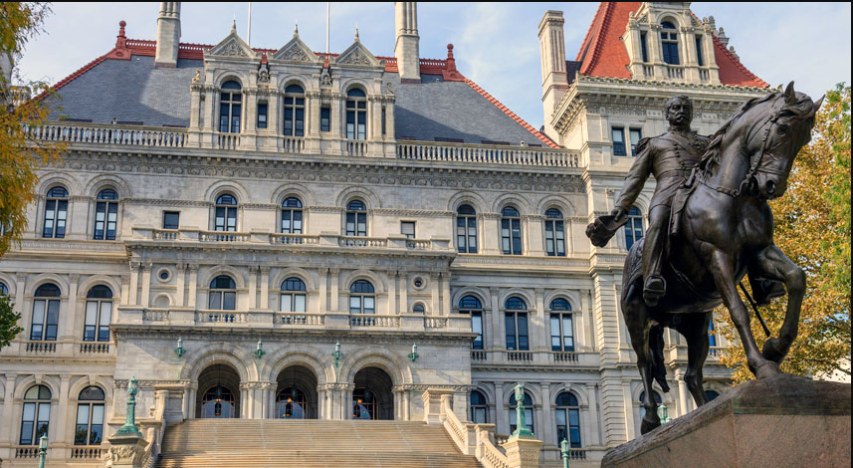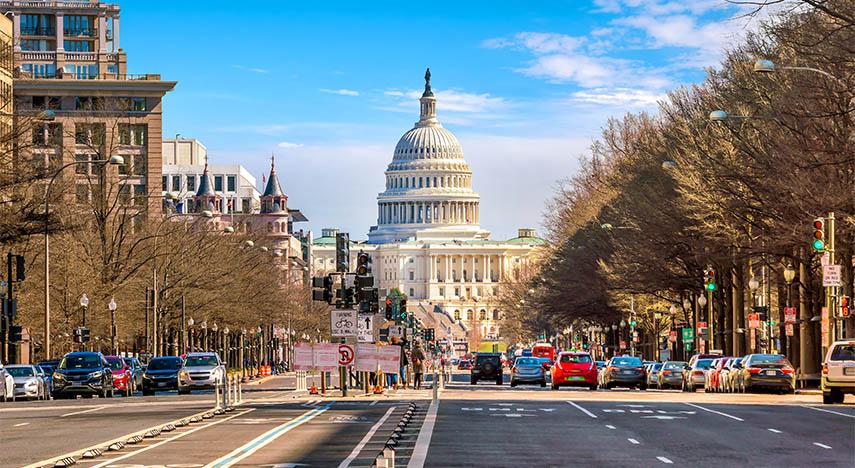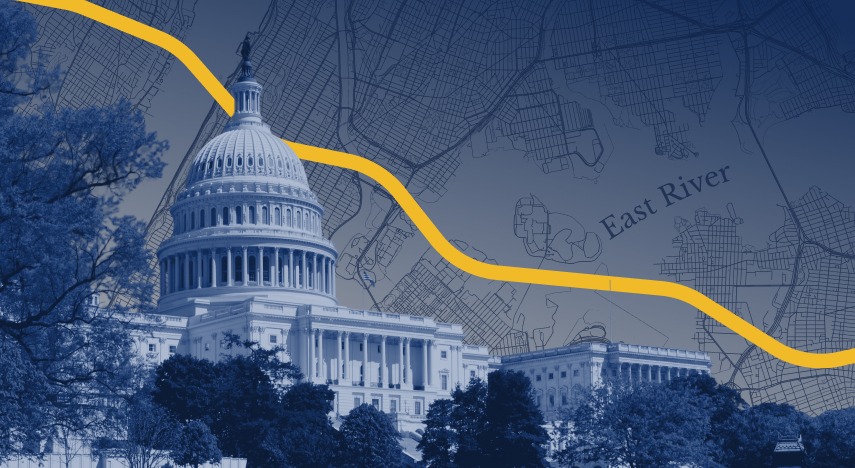
New York State Budget Analysis and Financial Reporting
State Comptroller DiNapoli provides independent monitoring, oversight and analysis of the State's fiscal position. He regularly issues reports on budget and policy issues, economic trends, and financial reports.
Featured Dashboard
Federal Funding and New York
HOW FUNDING SUPPORTS SERVICES IN NEW YORK
Budget resolutions passed by the 119th Congress will lead to a dramatic restructuring of the federal-state relationship. This online resource details the vast array of services that federal funding supports amid the continued uncertainty in Washington over potential cuts for states, including funds for Medicaid and other health programs, education, social welfare, transportation, public protection and other vital programs.

Post-COVID Trends in New York's Aging Prison Population
Incarcerated Individuals 50 and Older Increased
The long-term decline in the number of individuals in State prisons has led to a demographic shift towards an older incarcerated population and necessitates increased attention to policies and costs associated with this population. This report reviews demographic changes in New York’s prison population, changes in prison admission trends and recent policy changes that impact the level of incarceration in the State. Careful evaluation of crime trends, rehabilitation and the heightened healthcare costs for this older population is necessary to determine an approach that protects taxpayers and ensures public safety, while also promoting humane care and reducing incarceration wherever possible.
Read Report
Report on the State Fiscal Year 2026-27 Executive Budget
Federal Actions Continue to Cause Uncertainty for State’s Economy and Finances
This analysis of the proposed Executive Budget warns that the trajectory of projected State spending is estimated to increase at a rate faster than expected revenues, creating cumulative outyear budget gaps estimated by the Division of Budget to total $27.5 billion through SFY 2030 while reserves remain stagnant. Actions taken in Washington, including federal reductions in aid, create increased fiscal strains that are likely to affect the State’s economy, finances and safety net, necessitating increased caution when developing a spending plan. The proposed Budget also limits government accountability by eroding current contract oversight requirements.
Read Report
TAPping in: Is the Tuition Assistance Program Still Meeting Need?
Program Not Keeping Up With Inflation, Tuition Costs
New York’s Tuition Assistance Program (TAP) has not kept pace with inflation or rising tuition costs since the 2008-09 academic year. Undergraduate TAP recipients dropped by 77,000 (21%), with steep declines among two-year programs (45%), private-sector schools (40%), and the lowest income households (38%). Recent State actions to expand eligibility for TAP helped lead to an increase in TAP beneficiaries in AY 2024-25; however, continued attention to the program is critical as students face mounting debt levels and federal support is reduced.
Read Report
Obstacles to Independence: Financial Challenges Facing Young Millennials and Gen Z
Student Loan Debt, Rising Housing Costs, and High Unemployment Undermine Financial Independence
New York’s young adults — some members of Generation Z (born 1997-2012) and Millennials (born 1981-1996) — are facing a complex economic landscape, including higher unemployment rates, increasing costs, and larger debt burdens, that threatens their financial well-being. Rising household expenses, particularly for food, housing, and transportation, have outpaced growth in income. These conditions raise concerns about the State’s ability to retain its young workforce, critical for sustaining long-term growth.
Read Report
Workers With Disabilities Achieve Labor Force Gains, but Disparities Remain
Economic and Policy Insights
The labor force participation rate for those with a disability age 16 and over rose by 4.6 percentage points between 2019 and 2024, while it dropped 0.5 percentage points for the State’s nondisabled workforce. Nevethelesss, participation rates for people with disabilities remain far below the rest of the workforce. Continued efforts are need to diminish barriers to employment for people with disabilities.
Read Report
Report on Estimated Receipts and Disbursements
State Fiscal Years 2025-26 through 2027-28
The Office of the State Comptroller prepares this report as part of the "Quick Start" process established in the State Finance Law. The report includes revenue and spending projections through SFY 2027-28.
Read Report
Tax Provisions Under The Federal Reconciliation Bill
PROVISIONS DISPROPORTIONATELY BENEFIT THOSE WITH HIGHER INCOMES
This reports analyzes the federal tax provisions enacted under Public Law No: 119-21 and how they may impact New Yorkers. While the bill made permanent many tax changes included in the 2017 Tax Cuts and Jobs Act, it includes new tax breaks for seniors and the working class that are largely temporary. These minimal tax benefits, along with the significant cuts in safety net spending included in the legislation, will put a larger burden on New Yorkers trying to make ends meet.
View Report
New York’s Support for Aging New Yorkers
State Must Focus on Programs To Aid Seniors
As New York’s older population continues to increase and the federal funding that supports them becomes less predictable, understanding demand for services, how funding has addressed unmet needs and the challenges for fully supporting New Yorkers as they age is vital. This report focuses on programs administered by New York State Office for the Aging (NYSOFA), particularly in-home services. State funding for NYSOFA programs increased over 88%, or $114 million, in the New York State budget for State Fiscal Year (SFY) 2025–26 when compared to SFY 2018–19, yet waitlists for programs persist and data reporting makes it difficult to know how many are still left behind and where. The recent shift and reduction in federal support that will likely affect benefits available to many older New Yorkers make this an opportune time to review the major NYSOFA programs and funding addressed in this report.
Read Report
Report on the State Fiscal Year 2026 Enacted Budget and First Quarterly Financial Plans
State Faces $34.3 Billion Budget Gap Through 2029
New York State’s Financial Plan shows a growing structural budget deficit with a cumulative three-year budget gap of $34.3 billion, as forecasted by the Division of the Budget. The gap is up $7 billion since the January release of the Fiscal Year 2026 Executive Budget Financial Plan, and is attributable to downward revisions to the economic forecast and projected revenues, as well as increases in projected spending. When the projected costs of the federal reconciliation bill are added, the gaps as a share of spending are comparable to gap levels last seen in April 2009 during the Global Financial Crisis.
Read ReportFor questions, contact us [email protected]

